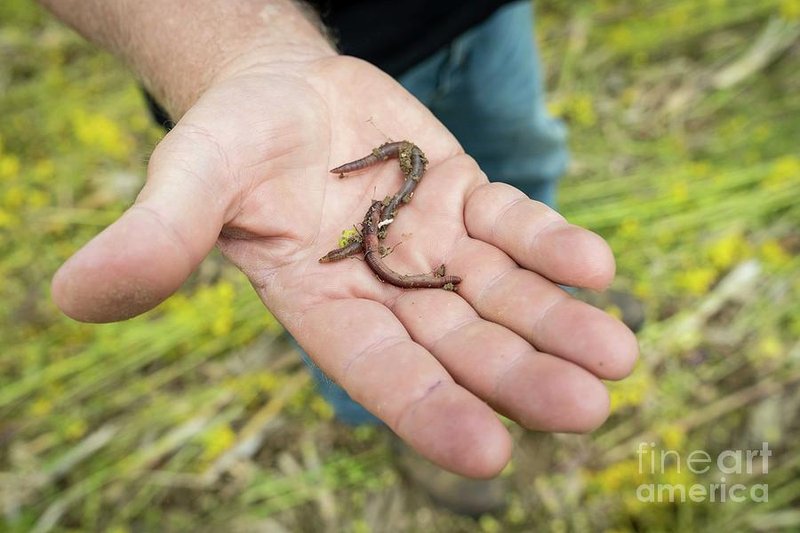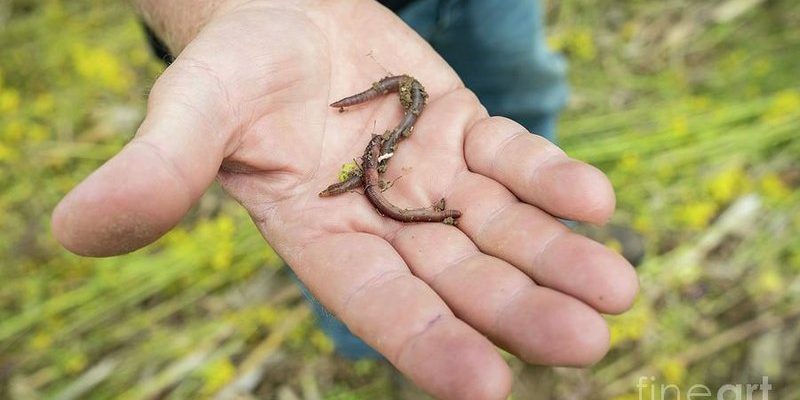
No-till farming is an innovative approach that aims to reduce soil erosion and improve soil health by leaving the soil undisturbed. In this method, instead of turning over the soil, which can disrupt its natural structure, farmers plant directly into it. Earthworms thrive in this environment, breaking down organic matter and helping nutrients move through the soil. It’s a relationship that benefits both the farmers and the earthworms—and ultimately, all of us who rely on agriculture.
Let’s dig deeper into how these little creatures play a big role in no-till systems and why they matter more than ever in modern farming.
Understanding No-Till Farming
So, what exactly is no-till farming? In essence, it’s a way of growing crops without turning the soil. Instead of plowing and tilling, farmers plant directly into the residue of previous crops. This method helps preserve soil structure and moisture, while reducing erosion and compaction.
By keeping the soil intact, no-till farming fosters a healthier ecosystem. **Earthworms**, along with other organisms, help maintain the essential balance needed for robust plant growth. They aerate the soil and facilitate the movement of water, nutrients, and roots, leading to stronger, more resilient plants. You might think of it like a natural highway for crops. Earthworms create channels in the soil, allowing everything from water to nutrients to move efficiently where they’re needed.
No-till methods can also lead to significant time and resource savings for farmers. With fewer tilling operations, there’s less fuel consumption and reduced wear on machinery. Honestly, it’s a win-win situation for the farmer and the environment.
The Role of Earthworms in Soil Health
Now, let’s talk about **earthworms** and why they deserve a spotlight. These creatures serve several essential functions that enhance soil health in no-till farming. First off, they help break down organic matter, transforming it into nutrient-rich compost. Think of them as nature’s composters, turning leaves, roots, and other organic materials into valuable food for plants.
As they burrow through the earth, earthworms create tiny tunnels that increase soil aeration. This process allows air and water to penetrate deeper into the ground, promoting a healthy root system. Healthy roots mean healthier plants. It’s a beautiful cycle of life, really. The more earthworms in the soil, the more vibrant the ecosystem becomes.
Moreover, earthworms contribute to nutrient cycling in the soil. They eat decaying matter and excrete it in a form that plants can easily absorb, commonly known as worm castings. These castings are rich in essential nutrients like nitrogen, phosphorous, and potassium—nutrients that crops need to thrive. The presence of earthworms is clearly beneficial for crop yields.
Benefits of Earthworms in No-Till Systems
You might be wondering, “What are the specific benefits of having earthworms in no-till farming systems?” Well, let’s break it down further into some key advantages:
- Improved Soil Structure: Earthworms help create a crumbly texture in the soil that enhances drainage and aeration.
- Increased Nutrient Availability: Their castings enrich the soil with vital nutrients, making it easier for plants to access what they need.
- Enhanced Water Retention: The channels created by earthworms allow water to soak in better, reducing the need for frequent watering.
- Biological Pest Control: A thriving earthworm population can help reduce harmful pest populations, promoting healthier crops.
These benefits are crucial for sustainable farming practices. They lead to healthier crops, better yields, and a more resilient farming system overall. When farmers have earthworms on their side, they can deal with challenges like droughts and pests with greater ease.
How to Encourage Earthworms in Your No-Till Farm
If you’re convinced of the benefits of earthworms and want to boost their presence in your no-till farming system, here are some practical tips:
- Minimize Soil Disturbance: Stick to no-till practices and avoid turning the soil excessively.
- Add Organic Matter: Incorporating compost, mulch, or cover crops provides food for earthworms and creates a favorable habitat.
- Maintain Moisture: Keeping the soil moist without over-watering supports earthworm activity, as they thrive in damp environments.
- Reduce Chemical Use: Limit pesticides and fertilizers that can harm earthworm populations and disrupt their natural functions.
These simple steps can create an inviting environment for earthworms to flourish. Over time, you’ll likely notice the positive impact on your soil and crops.
Challenges Earthworms Face
While earthworms are essential for soil health, they aren’t without their struggles. Here are some of the most common challenges they face, particularly in farming:
- Pesticides: Chemicals used to control pests can inadvertently harm earthworm populations.
- Soil Compaction: Heavy machinery can compact the soil, making it difficult for earthworms to move and thrive.
- Extreme Weather: Flooding or drought can severely impact their populations, as they rely on specific soil moisture levels.
As farmers become more aware of these challenges, it’s important to find ways to mitigate them. Adopting more sustainable practices not only helps earthworms but also supports the entire farming ecosystem.
The Future of Earthworms in Agriculture
Looking ahead, the role of earthworms in agriculture and no-till farming systems appears promising. With a growing focus on sustainability and regenerative practices, farmers are recognizing the importance of maintaining healthy soil ecosystems.
Research continues to emerge highlighting the benefits of earthworms and their impact on soil health and crop yields. As we learn more, there’s potential for innovative techniques that further integrate earthworms into farming practices. You might find farms designed with earthworms in mind, or even new technologies that encourage their growth.
In short, as we move into the future of farming, prioritizing the health of our soil through the support of earthworms can lead to greener, more sustainable agricultural practices.
In conclusion, earthworms play a crucial role in no-till farming systems, helping to maintain healthy soil and contributing to better crop yields. By understanding their importance and taking steps to encourage their presence, farmers can support a thriving ecosystem underneath our feet. It really shows how interconnected our world is, doesn’t it? So the next time you dig into a garden or wander through a farm, remember the little earthworm heroes working hard beneath the surface. They’re not just crawling around; they’re making the soil come alive.

